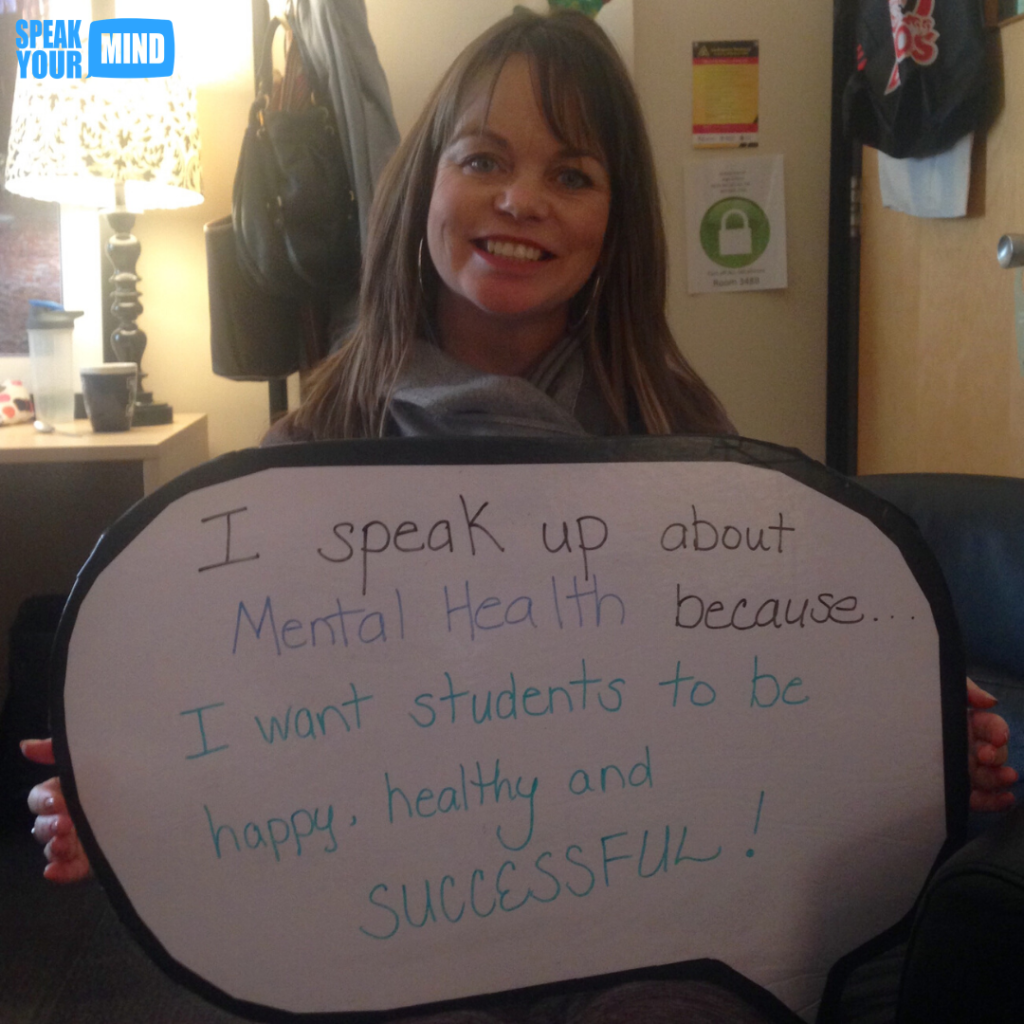Marybeth Mulligan – Counsellor at Bishop Carroll High School
On November 14, I had the pleasure of interviewing Ms. Marybeth Mulligan, a counsellor at Bishop Carroll High School. Ms. Mulligan has worked for many years as a counsellor, an educator and as a mental health advocate. In addition to counselling, she is a powerful figure in the mental health community at her school. Ms. Mulligan is one of the wonderful staff members who run Bishop Carroll’s Spectrum Club, Wellness Club and our annual justice fair. She hopes that in sharing her voice, students will be more comfortable with connecting with the resources available at their schools.
Why is mental health important to you?
I work in education where the goal is that kids are happy, healthy and successful, and it’s very difficult for students to care about school if they are struggling with mental health challenges.
What advice would you give someone who is going through difficult times?
My advice would be to talk and to get some help and tell a trusted person about the struggles that they’re going through. See if they can help get them to the right kind of help whether it be a doctor, a counsellor, a parent, a therapist. I would ask them to try and find somebody they can discuss the challenges they’re faced with. Sometimes that just starts with a friend. It’s important to make sure it doesn’t feel like they have to hide their struggles and be in isolation. So my advice would be to get out of isolation and get connected to other people until you find the right resources that work for you.
How has poor mental health affected your life, whether it be you personally or those you know?
I’ve met many people that have been struggling with life and daily tasks due to mental health and where they are at. My first year teaching was down in North Carolina where there were two orphanages and those kids from the orphanages would come to my class. That is when I realized that when people are struggling with mental health, [and they] don’t feel cared for and their primary needs aren’t being met, education, learning, and school just really doesn’t matter. I saw a wide variety of struggles that those kids were facing and that’s why I decided to leave teaching, further my education, and become a counsellor.
Why do you think mental health is something people don’t tend to talk about?
I think that there is this really peculiar stigma attached to mental health. It’s evolved into the idea that if you are struggling mentally, that’s a weakness. Though it’s okay to have a physical ailment, an ailment in the brain is [considered] a sign of weakness, craziness, weirdness, something that can’t be reversed. I think that stigma has been going around for a long time.
What has helped you to practice self-care and overcome your own struggles?
Getting help when you need it, not being afraid to ask for help, taking a break from stressful situations. That might even mean removing toxic people, creating boundaries for myself so that I won’t get into situations that I know will make myself feel uncomfortable. When it comes to self-care, sleep is so important, as is nutrition and physical activity, which are my three main go-to’s.
How has your mental health-related work made an impact in your community?
Sometimes us counsellors never know the impact that we make. I have had people come back and thank me for the conversations that I’ve had with them. I’ve had immediate gratitude be given to me and I’ve had people share with me years later the difference that it made, having someone be there for them. Being a counsellor, you’re just planting seeds and taking care of people where they’re at and you don’t always see the fruition or growth, and that’s okay. I might just be helping somebody on their journey to positive mental health. We don’t always see how that ends.


